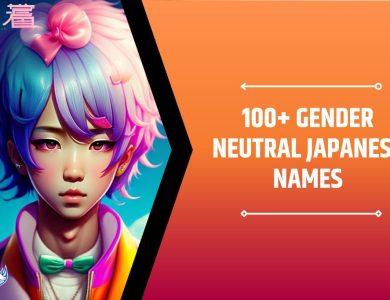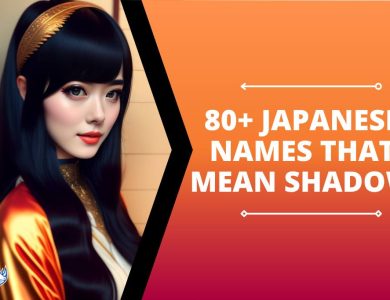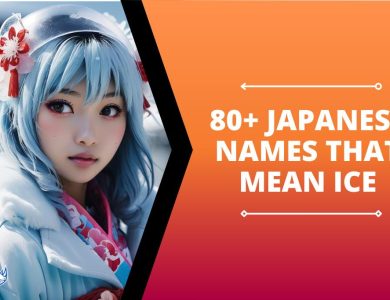60+ Japanese Names That Mean Angel
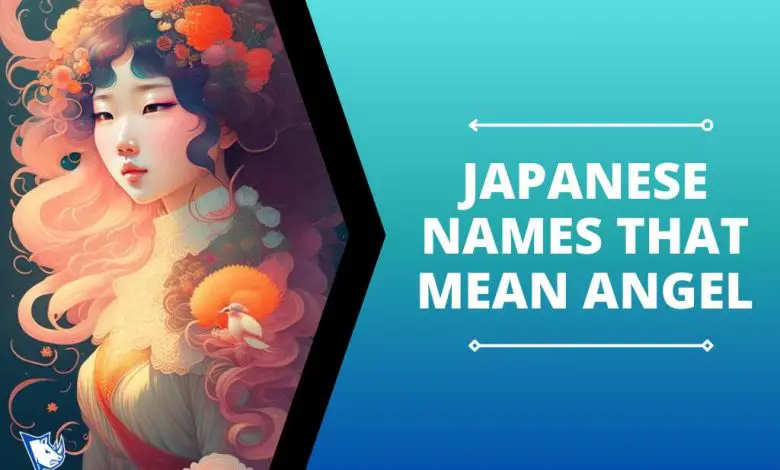
In Japanese culture, names hold significant meaning and often reflect the values and beliefs of the people who bear them. When it comes to names that mean “angel,” the Japanese language offers a beautiful array of choices that evoke feelings of purity, grace, and protection.
In this blog, we will explore some of the most enchanting Japanese names that embody the essence of an angel, and delve into the symbolism and history behind these timeless monikers. Join us on a journey through the world of Japanese names that exude an aura of celestial beauty and wonder.
Japanese Names That Mean Angel
Looking for a unique name with a heavenly touch? Discover Japanese names that mean angel and find the perfect name for your little one.
Tenshi (天使) – “angel” – This is the direct translation of “angel” in Japanese, carrying the same significance.
Megumi (恵) – “blessing” – Signifies an angel as a divine blessing.
Hikari (光) – “light” – Reflects the idea of angels as beings of light and purity.
Akari (明) – “brightness” – Similar to Hikari, emphasizing the luminous nature of angels.
Sera (セラ) – Derived from “seraphim,” one of the highest orders of angels, representing divine ardor.
Ayumi (歩美) – “walking beauty” – Suggests the graceful presence of an angel.
Yuriko (百合子) – “lily child” – Lily symbolizes purity, reflecting the angelic nature.
Yuki (雪) – “snow” – Represents the pure and serene quality associated with angels.
Kanna (神奈) – “god’s blessing” – Indicates the divine nature and benevolence of angels.
Ami (亜美) – “beautiful” – Suggests the beauty and elegance often attributed to angels.
Haruka (遥) – “distant” – Implies the ethereal and transcendent nature of angels.
Ai (愛) – “love” – Reflects the compassionate and loving nature often associated with angels.
Mei (芽依) – “sprouting reliance” – Indicates the nurturing and supportive aspect of angels.
Emi (絵美) – “beautiful picture” – Suggests the aesthetic beauty and harmony of angels.
Hana (花) – “flower” – Symbolizes the delicate and pure essence of angels.
Aiko (愛子) – “child of love” – Emphasizes the loving and nurturing qualities of angels.
Mika (美香) – “beautiful fragrance” – Suggests the uplifting and soothing presence of angels.
Natsuko (夏子) – “summer child” – Symbolizes the warmth and comfort associated with angels.
Sakura (桜) – “cherry blossom” – Represents the ephemeral and transcendent nature of angels.
Nozomi (望) – “hope” – Indicates the hopeful and comforting presence of angels.
Sora (空) – “sky” – Symbolizes the heavenly origin and ethereal nature of angels.
Misaki (美咲) – “beautiful blossom” – Reflects the beauty and renewal associated with angels.
Kaori (香織) – “fragrance weaving” – Suggests the comforting and uplifting presence of angels.
Kohana (小花菜) – “small flower vegetables” – Symbolizes the delicate and nurturing nature of angels.
Akira (明) – “bright” – Reflects the luminous and radiant qualities of angels.
Aya (彩) – “color” – Indicates the vibrant and diverse aspects of angels.
Nanami (七海) – “seven seas” – Suggests the boundless and expansive nature of angels.
Kiyomi (清美) – “pure beauty” – Reflects the purity and grace associated with angels.

Yui (結衣) – “binding clothes” – Symbolizes the protective and comforting presence of angels.
Asuka (飛鳥) – “flying bird” – Implies the ethereal and transcendent nature of angels.
Kokoro (心) – “heart” – Symbolizes the compassionate and loving nature of angels.
Mana (愛) – “love” – Reflects the nurturing and supportive qualities of angels.
Rina (莉奈) – “jasmine apple tree” – Symbolizes the purity and sweetness of angels.
Yua (結愛) – “binding love” – Suggests the protective and nurturing nature of angels.
Amaya (雨夜) – “rain night” – Indicates the soothing and comforting presence of angels.
Yumiko (由美子) – “child of beauty” – Reflects the beauty and grace associated with angels.
Yuri (百合) – “lily” – Symbolizes purity, innocence, and the divine presence of angels.
Kairi (海莉) – “ocean jasmine” – Suggests the calming and comforting presence of angels.
Anzu (杏) – “apricot” – Symbolizes the sweetness and purity of angels.
Himari (陽葵) – “sunflower” – Represents the radiant and uplifting presence of angels.
Asami (麻美) – “hemp beauty” – Suggests the natural and serene qualities of angels.
Hina (陽菜) – “sun vegetable” – Reflects the nurturing and life-giving nature of angels.
Yurie (由利絵) – “reason picture” – Symbolizes the guiding and protective presence of angels.
Mai (舞) – “dance” – Reflects the graceful and harmonious movements associated with angels.
Rika (理香) – “true fragrance” – Indicates the genuine and comforting presence of angels.
Hinata (陽向) – “sunny place” – Suggests the warmth and comfort of angels.
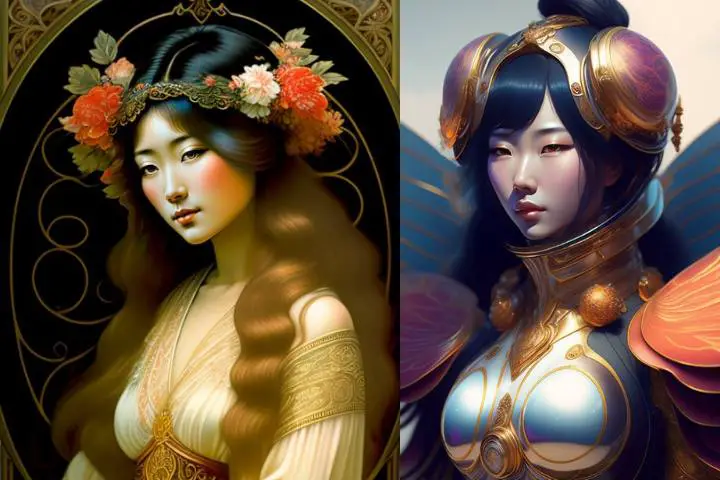
Suzu (鈴) – “bell” – Symbolizes the gentle and comforting sound of angels’ presence.
Kaede (楓) – “maple” – Represents the changing and transformative nature of angels.
Aina (愛菜) – “love greens” – Reflects the nurturing and life-affirming qualities of angels.
Rena (玲奈) – “sound of jewels” – Symbolizes the purity and radiance of angels.
Shiori (栞) – “bookmark” – Indicates the guiding and protective nature of angels.
Riko (理子) – “truth child” – Suggests the guiding and nurturing presence of angels.
Mirai (未来) – “future” – Reflects the hopeful and comforting presence of angels.
Fuyuko (冬子) – “winter child” – Symbolizes the purity and serenity of angels.
Mio (澪) – “waterway” – Reflects the flowing and soothing nature of angels.
Yumemi (夢見) – “dream seeing” – Indicates the comforting and guiding presence of angels.
Asumi (明日美) – “beautiful tomorrow” – Suggests the hopeful and nurturing nature of angels.
Kohana (心花) – “heart flower” – Reflects the compassionate and nurturing qualities of angels.
Satsuki (皐月) – “May” – Symbolizes renewal, growth, and the presence of angels.
Yui (結) – “tie” – Indicates the protective and comforting presence of angels.
Also Read:
Final Thought
These names carry significance related to purity, beauty, guidance, and protection, reflecting the qualities associated with angels in various cultural contexts.
